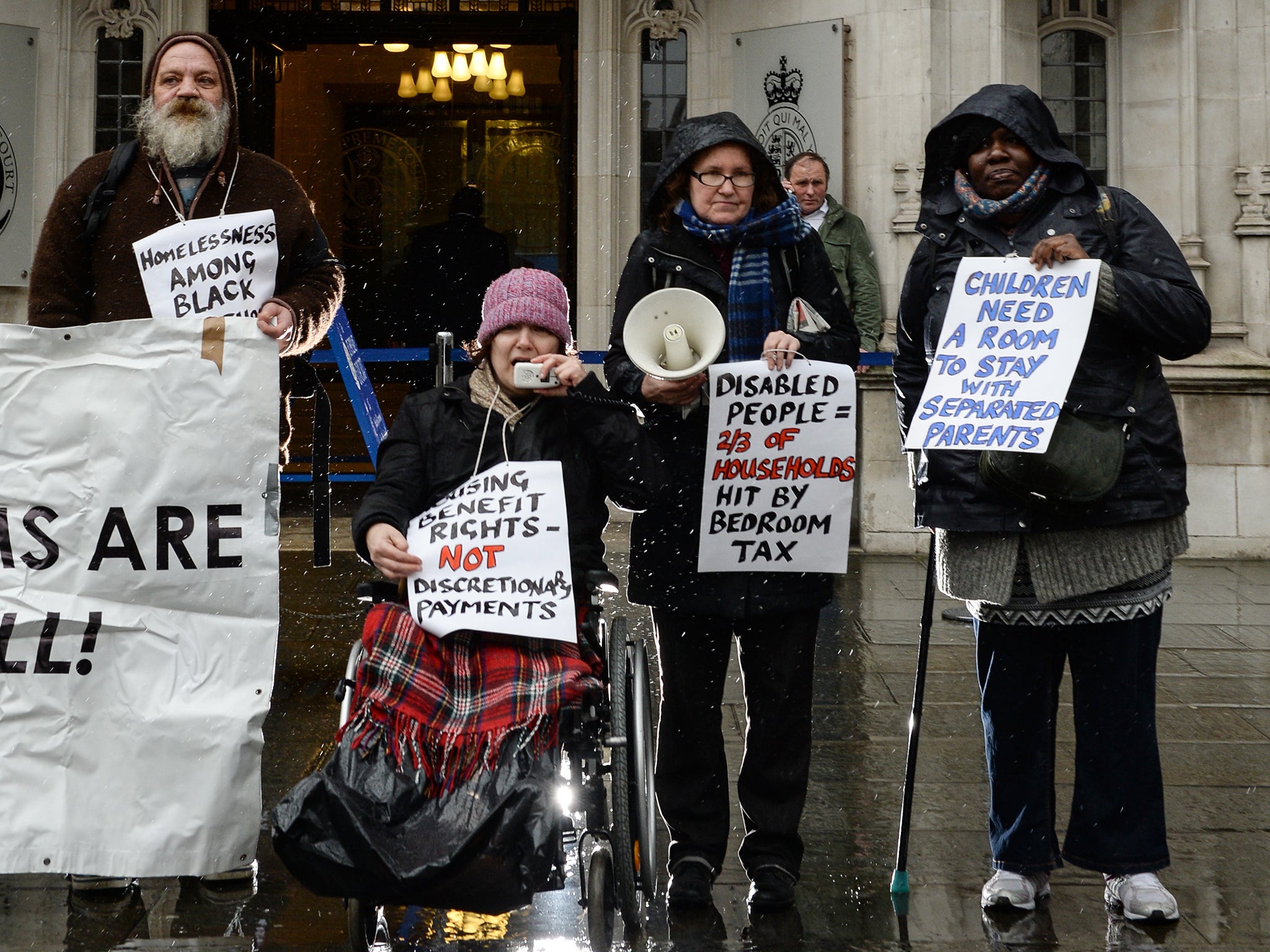Theresa May's Britain is a chilling place for disabled people like me
I am told there are grounds for optimism but, with the employment gap between disabled and non-disabled workers widening, this Government's track record doesn't give me much hope


What will Theresa May’s Britain be like for disabled people? There are many who might be inclined to say, “Well, it couldn’t get much worse”. But when the reality of what the Conservative Party has done strikes them, they might whisper fearfully, “Could it?”
Want evidence? The replacement of the Disability Living Allowance with the Personal Independence Payment accompanied by humiliating and cack-handed assessments run by private companies. No less awful have been the workplace assessments that have led to cancer patients and other seriously ill people being told they’re fit for work. Don’t forget the diet of cuts, cuts and more cuts, as some of the most vulnerable people in society pay for the mistakes of the country’s wealthy elites.
Theresa May voted for all these cuts and more while in Government. There were ministers willing to kick up a fuss, but she wasn’t one of them.

Still, my sources tell me that there are grounds of optimism if you care to conduct a search. Look to the future, they urge me, pointing to the new PM’s One Nation credentials. “The important thing to note is the company she doesn’t keep,” said one. And it is true that the headbangers from the nasty wing of the “nasty party” – one of May’s more memorable quotes, that – lined up behind the lamentable Andrea Leadsom and are now busily cleaning egg off their faces.
I was also pointed to the last Cabinet meeting chaired by her predecessor, David Cameron, where there was a discussion on “life chances” and the Government’s desire to foster “opportunity for all” as a way to treat the root causes rather than just the symptoms of poverty. It will be for May to decide whether or not to take that forward; the suggestion is that she will.
However, securing real and substantive change requires more than pretty words. One of the Conservative Government’s key commitments towards the disabled community has been its pledge to halve what is known as the “disability employment gap” – the difference between the rates of employment among disabled and the non-disabled populations of working age.
Official figures show that policy-making in this area has been a miserable failure. The employment rate for disabled people between January and March was a pitiful 46.9 per cent. To be fair, that is an increase of 0.6 per percentage points when compared to the same period in 2015. However, the employment rate for non-disabled people increased by 0.9 per cent, widening the gap between the two to a staggering 33 percentage points. In fact it has remained around 30 per cent for more than a decade now.
Government schemes such as “Disability Confident”, launched with a fanfare by Cameron alongside “guidance to help employers attract, recruit and retain disabled people”, have had about as much impact as an England striker facing an Icelandic defence.
To achieve real progress a stick might be needed in addition to the rather limp carrot of being able to say “Hey, we’re disability confident!” on a corporate website. Employers and business groups tend to scream blue murder when anyone talks about legislation to force them to do what they ought to do, even though some employers recognise that it can offer real benefits. “It helped us sell more beer,” said a brewer I once talked to about their progressive employment practices.
Perhaps May’s Government will be different. She’s had some surprising things to say about business policy: putting employees on company boards, and giving shareholders annual and binding, votes on bosses’ pay, for example. If this is the shape of things to come, and she means to be similarly serious about fostering “equality of opportunity” when it comes to disabled people, then maybe she’ll be willing to entertain similarly radical ideas.
It isn’t easy to feel hopeful right now. Britain is a chilly place if you happen to have a disability, and all the more so post-Brexit.
It is true that the Government embarrassed itself the last time it tried to impose a fresh round of cuts on disabled people. Chancellor George Osborne was forced into a hasty volte face. But the economic cost of Brexit won’t give his successor much room to manoeuvre.
So, at the moment, my glass of Chateaux May is half-empty when it comes to the outlook for my community.
Join our commenting forum
Join thought-provoking conversations, follow other Independent readers and see their replies
Comments
Bookmark popover
Removed from bookmarks